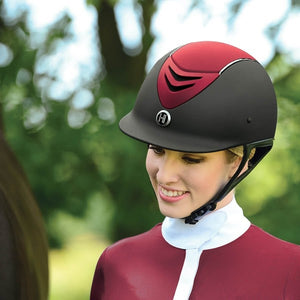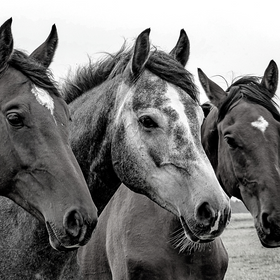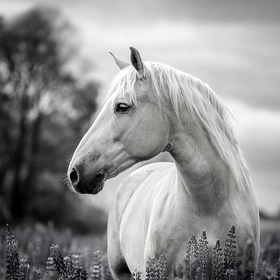
Preventing Sunburn in Horses
Spring and summer are usually the best time of year for horseback riders. The weather is finally at the perfect temperature to be outside and in the saddle. The sunshine and longer days allow you to hit the trails and enjoy time with your horse. But, the harsh sun can be a real trial for light-skinned horse owners.
Horse owners of pink-skinned horses, such as Paints, Pintos, Cremellos, and Appaloosas, know the reality of sunburned horses. If you have ever had a sunburn yourself, you know what a painful experience this is.
Sunburn prevention for horses is similar to sunburn prevention for humans. Active prevention is preferable to treating a painful sunburn. Because horses live outside, sunburn prevention is a daily task. Sunscreen and shade are essential tools in keeping your horse safe from rays.
Sunscreens
There are many horse-specific sunscreens on the market with high SPF protection. An easy-to-use butter stick or roll-on applicator makes it easy to apply sunscreen to your horse’s nose or areas with exposed skin. If you already have a stockpile of sunscreen at home, baby sunscreen or sunscreen with 50 or over SPF protection will work too!
Stay Shaded
Sun shades or some type of cover are essential to keep all horses cool but are even more important for light-skinned horses. For horses living in excessively hot, sunny climates, consider keeping your horse inside during the day and turned out at night. Switching the schedule can reduce sun exposure, fly exposure, and keep your horse cooler. If you do not have a barn or cannot change your turnout schedule, ensure your paddock has a large shaded area where your horse can get out of the sun. If your horse is in a herd, this area might need to be very large.
Fly sheets and fly masks are another way to protect your horse. Fly sheets provide multipurpose protection, and most come in UV protective fabric. When purchasing or researching fly sheets, look for breathable, light material to keep your horse cool during the warmer parts of the day. If your horse will tolerate it, purchase a fly mask with a nose protector. This provides a little extra shade for their sensitive nose area.
After Sun Care
If your horse already has sunburn, sunscreen won’t help heal the damaged skin. Keep the area clean and moisturized with a balm or wound coat, as with any wound. You want to avoid any products with alcohol in them as this will dry out the skin leading to painful cracking. If the sunburn is severe, or your horse is rubbing it, use a clean, warm cloth to clean the area and remove dirt to prevent infection.
Keep your horse out of the sun as much as possible while the sunburn is healing. Continue to apply sunscreen if they are outside. It will not help heal the current sunburn, but it will prevent it from getting worse.





